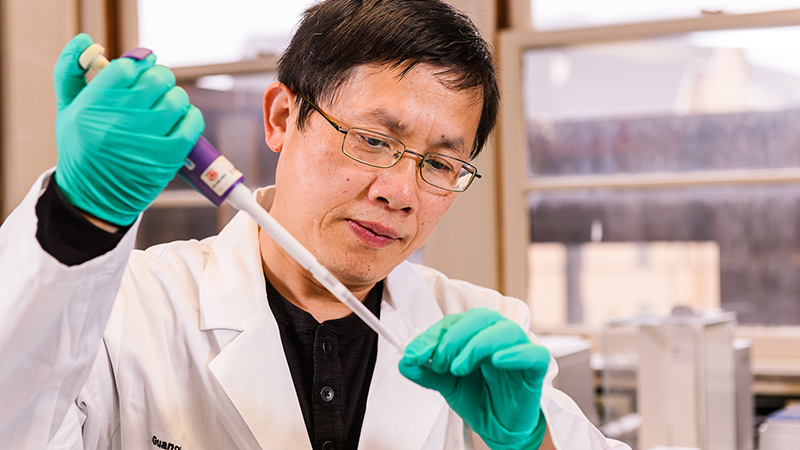
A University of Missouri researcher is studying the impact of the fatty Western diet on a specific cell receptor that could be the key to eventually reducing the surging rates of Type 2 diabetes and metabolic disorders.
The National Institute of Diabetes and Digestive and Kidney Diseases (NIDDK) has awarded Guanghong Jia, PhD, an assistant professor at the University of Missouri School of Medicine, a $1.9 million grant to study the activation of cell-specific mineralocorticoid receptors in the development of insulin resistance and Type 2 diabetes.
According to data released by the Centers for Disease Control, the U.S. obesity rate has reached 42% — surpassing the 40% mark for the first time. More than 25 million people have Type 2 diabetes, and 75 million have insulin resistance associated metabolic disorders.
“We believe this high prevalence of obesity and Type 2 diabetes is associated with excessive consumption of the Western diet, which is generally characterized by high fat content and refined sugars.” Jia said. “Our goal is to understand how this reaction occurs and to learn more about the mechanisms that cause it.”
Jia’s research focuses on a hypothesis that a diet high in fat and refined sugar elicits communication between blood vessel cells and skeletal muscle cells that contributes to excess fat storage in the muscles, liver, pancreas and heart — areas not known for storing fat. This process eventually leads to the development of insulin resistance and increases the risk of developing Type 2 diabetes.
Jia’s team will treat cells in the lab with fatty acid and feed mice a Western diet to set up a model that will study the cell signaling that causes obesity and insulin resistance.
“We have identified several novel markers and molecular targets,” Jia said. “Understanding the biochemical pathways and markers could lead to specific treatments, including new drugs and dietary interventions to reduce diabetes with metabolic disorders.”
The NIDDK grant is a five-year, $1.95 million award that runs through December 2025.





